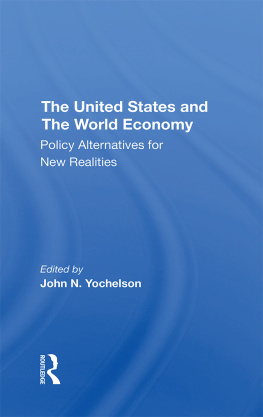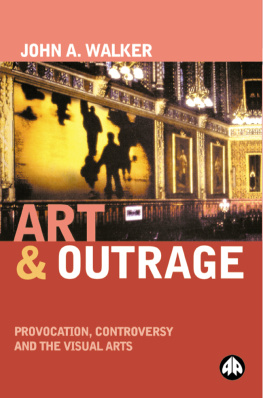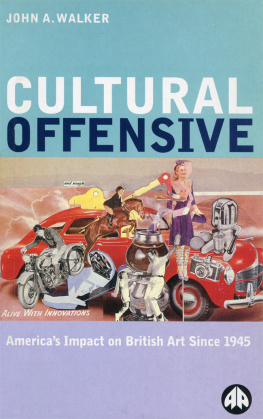First published 1996 by M.E. Sharpe
Published 2015 by Routledge
2 Park Square, Milton Park, Abingdon, Oxon OX14 4RN
711 Third Avenue, New York, NY 10017, USA
Routledge is an imprint of the Taylor & Francis Group, an informa business
Copyright 1996 Taylor & Francis. All rights reserved.
No part of this book may be reprinted or reproduced or utilised in any form or by any electronic, mechanical, or other means, now known or hereafter invented, including photocopying and recording, or in any information storage or retrieval system, without permission in writing from the publishers.
Notices
No responsibility is assumed by the publisher for any injury and/or damage to persons or property as a matter of products liability, negligence or otherwise, or from any use of operation of any methods, products, instructions or ideas contained in the material herein.
Practitioners and researchers must always rely on their own experience and knowledge in evaluating and using any information, methods, compounds, or experiments described herein. In using such information or methods they should be mindful of their own safety and the safety of others, including parties for whom they have a professional responsibility.
Product or corporate names may be trademarks or registered trademarks, and are used only for identification and explanation without intent to infringe.
Library of Congress Cataloging-in-Publication Data
History of the U.S. economy since World War II / Harold G. Vatter and John F. Walker, editors.
p. cm.
Includes index.
ISBN 1-56324-473-X (alk. paper.)
ISBN 1-56324-474-8 (pbk.: alk. paper.)
1. United StatesEconomic conditions1945
2. United StatesEconomic policy.
I. Vatter, Harold G.
II. Walker, John F.
HC106.5.H516 1995
333.973092dc20
95-19965
CIP
ISBN 13: 9781563244742 (pbk)
ISBN 13: 9781563244735 (hbk)
CONTENTS
Harold G. Vatter
Harold G. Vatter
Stuart Bruchey
Stephen K. McNees
The National Science Foundation
The National Science Board
John F. Walker and Harold G. Vatter
Dick Russell
Charles J. Haulk
Lynne E. Browne
Bureau of the Census
Bureau of the Census
Bureau of the Census
Bureau of the Census
Council of Economic Advisers
Howard L. Friedenberg and Rudolph E. DePass
Marvin R. Duncan
Robert Z. Lawrence
American Public Transit Association
Mark O. Hatfield
George E. Peterson
Burton A. Weisbrod
Richard D. Porter and Amanda S. Bayer
John E. Ullmann
Council of Economic Advisers
Mansel G. Blackford and K. Austin Kerr
Leland E. Crabbe, Margaret H. Pickering, and Stephen D. Prouse
U.S. Small Business Administration
Janice Shack-Marquez
Lois M. Plunkert
William E. Cullison
Mary C. King
Elizabeth Evanson
Katharine L. Bradbury
Bennett Harrison, Chris Tilly, and Barry Bluestone
Democratic Staff of the Joint Economic Committee, United States Congress
Eva Jacobs and Stephanie Shipp
The Economist
Bureau of the Census
Council of Economic Advisers
Consumers Union
Department of Commerce
William J. Wiatrowski
Howard V. Hayghe
Council of Economic Advisers
Bureau of the Census
Carlyle C. Douglas
Department of Commerce
Ralph E. Smith and Bruce Vavrichek
Constance Sorrentino
Council of Economic Advisers
Harold G. Vatter and John F. Walker
Harold G. Vatter and John F. Walker
Peter K. Eisinger and William T. Gormley
Council of Economic Advisers
Council of Economic Advisers
Council of Economic Advisers
Walter W. Heller
Herbert Stein
Harold G. Vatter and John F. Walker
Council of Economics Advisers
Paul R. Portney
Phyllis Myers
Laurence P. Feldman, ed.
Raymond E. Owens
Council of Economic Advisers
Hans H. Landsberg
Richard D. Coe
Paul E. Peterson and Mark C. Rom
Social Security Administration
Robert W. DeGrasse, Jr.
Council of Economic Advisers
Presidents Committee on Urban Housing
David C. Schwartz, Richard C. Ferlauto, and Daniel N. Hoffman
CONSAD Research Corporation for the Department of Commerce
Congressional Budget Office
National Commission on Excellence in Education
John DiIulio
Harold G. Vatter and John F. Walker
Organization for Economic Cooperation and Development
Securities and Exchange Commission
Congressional Budget Office
Robert A. Eisenbeis
Congressional Budget Office
John F. Walker
G. H. Lawson
John F. Early, Walter Lane, and Philip Sturm
Sherman J. Maisel
Andrew H. Bartels
Nicholas Kaldor
Marvin Goodfriend
Andrew Brimmer
Council of Economic Advisers
Council of Economic Advisers
Jack L. Hervey
Council of Economic Advisers
Council of Economic Advisers
Council of Economic Advisers
Stephen Browne
Senate Special Committee to Study the Foreign Aid Program
House Task Force on Foreign Assistance
B. Dianne Pauls
Export-Import Bank
Vernon M. Briggs, Jr.
John F. Walker and Harold G. Vatter
The U.S. mixed economy of large government spending and participation in the market system has been firmly rooted for half a century, an era with distinct characteristics and its own economic history. Yet there is no single up-to-date work that portrays this era comprehensively and in a way that is accessible to teachers, students, and interested members of the general reading public. The present book is designed to remedy this surprising deficiency. It is intended to be an inclusive work, not supplementary to other sources.
Those persons familiar with both standard economic history texts and the actual postwar economic evolution will welcome, we trust, the selection of innovative topics to be found herein. All too frequently, and we think unfortunately, many of these subjects are bypassed.
There were two compelling reasons we chose to make this a written-and-edited work. The first was to expeditiously fill the aforementioned gap in overall treatment of the post-World War II era. An acute awareness of that deficiency emerged partly from personal teaching experience over the years. Existing economic histories do not, and as presently constituted cannot, even begin to do justice to this half century of rich and turbulent experience. One has to scrounge around distressingly to find and integrate masses of supplementary material, readings that swamp in sheer volume any basic work used as a fulcrum. A second reason was the abundant diversity of topics and interpretations that the written-and-edited format provides. The typical historians criticism that contemporary history has unfolded too recently for proper interpretive digestion, however correct or misguided such a view may be, is thus basically allayed.














